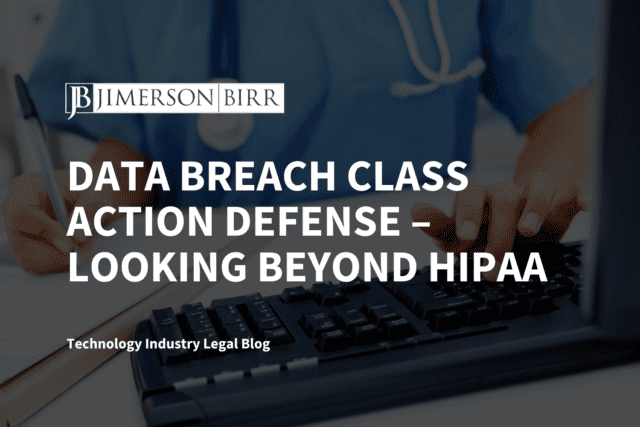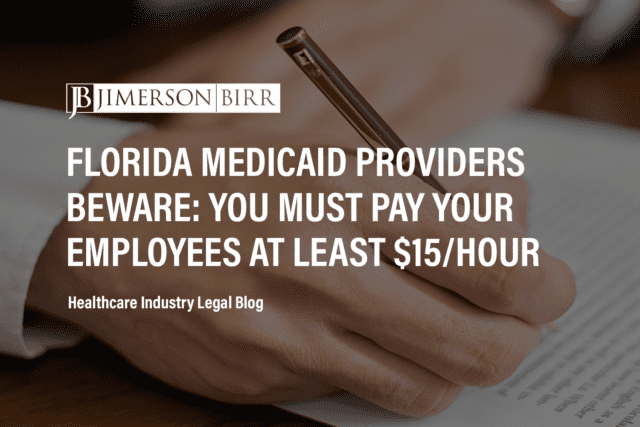How do hospital privileges, medical staff issues, peer reviews and credentialing affect hospitals?
Hospital privileges, medical staff issues, peer reviews, and credentialing play critical roles in shaping the quality of care and overall functioning of hospitals. Hospital privileges refer to the rights granted to physicians and other healthcare professionals to admit and treat patients within a hospital setting. These privileges are typically granted based on the individual’s qualifications, training, experience, and adherence to professional standards of practice. The granting and oversight of hospital privileges are essential for ensuring that patients receive safe, competent, and effective care from qualified healthcare providers.
Medical staff issues encompass a wide range of matters related to the governance, management, and performance of the hospital’s medical staff. This includes issues such as membership criteria, bylaws, policies and procedures, peer review processes, disciplinary actions, and professional conduct standards. Effective management of medical staff issues is crucial for maintaining a cohesive and well-functioning medical staff, fostering collaboration among healthcare providers, and promoting patient safety and quality of care.
Peer reviews are systematic evaluations of a healthcare provider’s clinical performance, competence, and conduct by their peers within the medical staff or healthcare organization. Peer review processes are designed to identify and address concerns related to patient care quality, clinical outcomes, professional behavior, and adherence to professional standards. By conducting peer reviews, hospitals can identify opportunities for improvement, address performance deficiencies, and ensure that healthcare providers meet established standards of care and practice.
Credentialing involves the process of verifying and evaluating the qualifications, credentials, licensure, education, training, and experience of healthcare providers seeking privileges to practice within a hospital or healthcare organization. Credentialing ensures that healthcare providers meet minimum competency requirements and possess the necessary qualifications to deliver safe and effective care to patients. By rigorously credentialing healthcare providers, hospitals can mitigate risks related to patient safety, liability, and regulatory compliance.
Need help regarding hospital privileges, medical staff issues, peer reviews and credentialing? Schedule your consultation today with a top healthcare attorney.
In Florida, which laws and regulations apply to hospital privileges, medical staff issues, peer reviews and credentialing?
In Florida, hospital privileges, medical staff issues, peer reviews and credentialing are governed by a combination of federal and state laws, regulations, and payer policies. Some key laws, regulations, and guidelines applicable to these aspects of healthcare finance in Florida include: · Florida Medical Malpractice Act (Florida Statutes, Chapter 766: This chapter of the Florida Statutes contains provisions related to medical malpractice claims, including definitions, procedural requirements, limitations on damages, and statutes of limitations for filing lawsuits. · Florida Patient’s Bill of Rights and Responsibilities: This law outlines patients’ rights and healthcare providers’ obligations in Florida, including informed consent, confidentiality, access to medical records, and the right to refuse treatment. Violations of patients’ rights may form the basis for hospital privileges, medical staff issues, peer reviews and credentialing.
· Federal Laws and Regulations: Federal Laws and Regulations: Federal laws and regulations, including the Health Insurance Portability and Accountability Act (HIPAA), Emergency Medical Treatment and Labor Act (EMTALA), and Anti-Kickback Statute, may also play a role in hospital privileges, medical staff issues, peer reviews and credentialing in Florida, particularly in cases involving healthcare fraud, patient privacy violations, and regulatory compliance issues.
What are common issues that can lead to hospital privileges, medical staff issues, peer reviews and credentialing?
Several common issues can lead to hospital privileges, medical staff issues, peer reviews and credentialing, reflecting the complex nature of the healthcare industry and the potential for disputes to arise in various contexts. Some of these issues include:
· Medical Malpractice: Allegations of medical malpractice arise when patients believe they have received substandard care from healthcare providers, leading to injury, harm, or even death. Examples include surgical errors, misdiagnoses, medication errors, birth injuries, and failure to provide appropriate treatment.
· Informed Consent: Disputes over informed consent occur when patients believe they were not adequately informed about the risks, benefits, and alternatives of a medical procedure or treatment before consenting to it. Lack of informed consent can lead to allegations of negligence or battery.
· Negligent Hiring or Supervision: Healthcare facilities may face litigation if they hire or retain healthcare professionals who are incompetent, unqualified, or have a history of malpractice. Similarly, allegations of inadequate supervision of staff can lead to lawsuits if patients are harmed as a result.
· Fraud and Abuse: Healthcare fraud and abuse involve intentional deception or misrepresentation by healthcare providers, payers, or other entities for financial gain. Common examples include billing for services not rendered, upcoding, unbundling services, kickbacks, and Stark Law violations.
· HIPAA Violations: Healthcare entities can face litigation for violations of the Health Insurance Portability and Accountability Act (HIPAA), particularly concerning the unauthorized disclosure of patients’ protected health information (PHI). Breaches of patient confidentiality can result in civil penalties, lawsuits, and reputational damage.
· Antitrust Violations: Healthcare providers may face litigation for antitrust violations, such as price-fixing, market allocation, or anti-competitive behavior that harms competition and consumers. Antitrust lawsuits can arise in various contexts, including hospital mergers, physician group collaborations, and payer-provider negotiations.
· Regulatory Compliance: Non-compliance with healthcare regulations and licensing requirements can lead to litigation and enforcement actions by government agencies. Common regulatory issues include violations of Medicare or Medicaid billing rules, licensure deficiencies, and violations of state or federal healthcare laws.
· Consumer Protection Lawsuits: Patients may bring lawsuits against healthcare providers or facilities under consumer protection laws for deceptive or unfair practices, such as false advertising, misleading marketing, or breach of contract.
We are value-based attorneys at Jimerson Birr, which means we look at each action with our clients from the point of view of costs and benefits while reducing liability. Then, based on our client’s objectives, we chart a path to seek appropriate remedies. To determine whether your unique situation may necessitate litigation, please contact our office to set up your initial consultation.
What steps should businesses take to minimize the risk of hospital privileges, medical staff issues, peer reviews and credentialing?
Minimizing the risk of hospital privileges, medical staff issues, peer reviews and credentialing requires a proactive approach to identify, mitigate, and manage potential legal risks. Here are some steps that businesses in the healthcare industry can take to reduce the likelihood of facing litigation:
· Comprehensive Compliance Program: Implement a robust compliance program tailored to the specific needs and risks of the healthcare business. The program should include policies, procedures, and training on relevant laws and regulations, such as HIPAA, Stark Law, Anti-Kickback Statute, and Medicare billing rules.
· Regular Training and Education: Provide ongoing training and education to employees on compliance requirements, ethical standards, and best practices in healthcare delivery and documentation. Ensure that staff members understand their roles and responsibilities in maintaining compliance and reducing legal risks.
· Effective Documentation Practices: Establish and enforce documentation protocols to ensure accurate, complete, and timely documentation of patient care, treatment decisions, informed consent, and billing activities. Proper documentation can serve as critical evidence in defending against legal claims and regulatory inquiries.
· Quality Assurance and Risk Management: Implement quality assurance and risk management programs to identify, assess, and mitigate potential risks to patient safety, quality of care, and regulatory compliance. Conduct regular audits, peer reviews, and incident reporting to proactively address issues before they escalate into litigation.
· Patient Communication and Satisfaction: Foster open communication with patients, address their concerns promptly, and strive to deliver high-quality, patient-centered care. Strong patient-provider relationships can reduce the likelihood of patient dissatisfaction and complaints that may lead to litigation.
· Credentialing and Privileging Processes: Establish rigorous credentialing and privileging processes for healthcare providers to ensure that only qualified and competent individuals are granted clinical privileges. Conduct thorough background checks, credential verifications, and peer evaluations to minimize the risk of malpractice claims.
· Transparent Billing and Financial Practices: Maintain transparent billing practices, accurately communicate costs to patients, and ensure compliance with billing regulations and payer policies. Avoid billing errors, upcoding, unbundling, and other practices that may lead to allegations of fraud or billing misconduct.
Have more questions about hospital privileges, medical staff issues, peer reviews and credentialing?
Crucially, this overview of hospital privileges, medical staff issues, peer reviews and credentialing does not begin to cover all the laws implicated by this issue or the factors that may compel the application of such laws. Every case is unique, and the laws can produce different outcomes depending on the individual circumstances.
Jimerson Birr attorneys guide our clients to help make informed decisions while ensuring their rights are respected and protected. Our lawyers are highly trained and experienced in the nuances of the law, so they can accurately interpret statutes and case law and holistically prepare individuals or companies for their legal endeavors. Through this intense personal investment and advocacy, our lawyers will help resolve the issue’s complicated legal problems efficiently and effectively. Having a Jimerson Birr attorney on your side means securing a team of seasoned, multi-dimensional, cross-functional legal professionals. Whether it is a transaction, an operational issue, a regulatory challenge, or a contested legal predicament that may require court intervention, we remain tireless advocates at every step. Being a value-added law firm means putting the client at the forefront of everything we do. We use our experience to help our clients navigate even the most complex problems and come out the other side triumphant.
If you want to understand your case, the merits of your claim or defense, potential monetary awards, or the amount of exposure you face, you should speak with a qualified Jimerson Birr lawyer. Our experienced team of attorneys is here to help. Call Jimerson Birr at (904) 389-0050 or use the contact form to schedule a consultation.

We live by our 7 Superior Service Commitments
- Conferring Client-Defined Value
- Efficient and Cost-Effective
- Accessibility
- Delivering an Experience While Delivering Results
- Meaningful and Enduring Partnership
- Exceptional Communication Based Upon Listening
- Accountability to Goals











